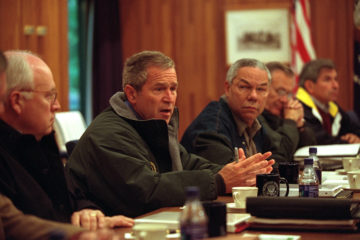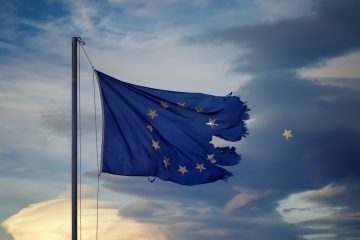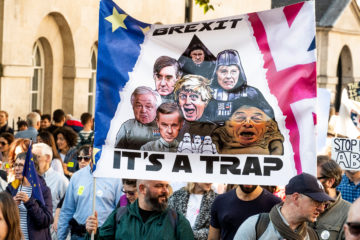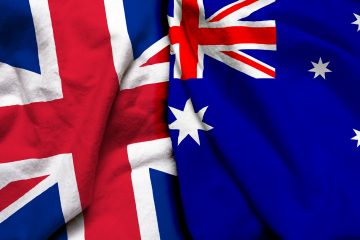The Paradoxical Effect of COVID-19 on Globalisation
COVID-19 is expected to have far-reaching social effects on globalisation. Many have argued that the pandemic will lead to intensified nationalism, causing countries to turn from the global community. However, we argue that the pandemic will set the stage for a potentially unprecedented era of global cooperation. Short-Term Social Impact of COVID-19 Crises in general tend to strengthen national sentiments. Citizens put their trust in their nation-state, which has the “financial, organisational and emotional strengths that global institutions lack.” This is reinforced by the absence of the notion of community and belonging at the global level. Patriotic symbols and a sense of immediate kinship do not exist in international institutions. This has become particularly clear within in the European Union, one of the most integrated …
Dissecting the Hindu Chauvinism in India’s COVID-19 Response
The global Covid-19 pandemic has led an alarming transformation of the world’s social, economic, and political life. In that context, it is important to understand how the pandemic has added momentum to India’s inertial slide into a full-fledged Hindu majoritarian state. In India, Prime Minister Narendra Modi’s Hindu nationalist government has seized upon this public health emergency as an opportunity to strengthen its hold on Indian society. In this article, we examine how the Covid-19 pandemic has provided Modi’s single-party national government with fertile ground for advancing its Hindu nationalist project. Vigilante Blame Culture The global spread of Covid-19 has provided Hindutva organisations, which seek to merge Hindu and Indian identities, with a fresh target for their nationalist propaganda. In line with …
Can #BernieOrBust Be Justified? On the Ethics of Voting
The #BernieOrBust slogan was widely adopted in the 2016 Presidential Elections by ardent supporters of Senator Bernie Sanders. These devotees insisted that they would not vote for any candidate (namely Hillary Clinton, the eventual Democratic Party nominee) in the eventual general election showdown with Trump. Four years later, the slogan has resurfaced as a credible threat directed toward what many perceive to be a recalcitrant Democratic Party establishment. In what follows, I do not claim that “#BernieOrBusters” are morally justified (all things considered), but merely offer a possible defence for why some #BernieOrBust advocates are behaving in a rationally justified manner. I grant two premises amenable to most critics of #BernieOrBusters: first, Trump is a highly problematic candidate in his actions and dispositions; second, whilst not …

War and the Ballot Box: What the Iraq War Tells Us About Military Escalation in an Election Year
U.S. presidents have powerful political incentives to think twice before escalating a conflict in the lead-up to an election. Recent events in the Gulf suggest that President Trump is no exception when it comes to avoiding the commitment of “boots on the ground” in an election year. As both commander-in-chief and holder of the highest elected office, presidents must carefully weigh the political consequences of any decision regarding military strategy. Since voters tend to bear the brunt of the human and financial costs of war, decisions to send additional U.S. forces into combat are often fraught with risk of consequent reprisal at the ballot box. In my recent article in International Security, I explore how these electoral pressures affected decision-making during the Iraq War. …

Can Europe Make It? The EU After Brexit
Brexit has weakened populists on the continent? This is wishful thinking. No longer willing to leave the EU, instead populists are determined to take it over. Brexit is a moving target. Each time we think we have a deal, the British House of Commons decides to re-think. It’s like the famous passage from T.S. Eliot: “Time yet for a hundred indecisions/And for a hundred visions and revisions,/ Before taking a toast and tea.” Boris Johnson expected the Parliament to approve the exit deal he reached with the EU. Instead, the Parliament voted for an amendment tabled by a Tory MP, Sir Oliver Letwin. The amendment withholds approval of the deal, until the legislation to enact it is safely passed – …

Star Wars and Brexit: The “Rebel Alliance” leaves its mark
It is a period of civil war. Rebel politicians, striking from hidden Westminster offices, have won their first victory against the evil Brexiteer Prime Minister. During the battle, Rebel MPs manage to steal control of the Commons… The so-called “rebel alliance” of pro-EU MPs secured an important victory on September 4 of this year in their quest to prevent a no-deal Brexit: parliament passed the Benn-Burt Bill, which requires Prime Minister Boris Johnson to seek a four-month extension of Article 50 if parliament has not agreed to a no-deal Brexit or a withdrawal agreement by October 19. When the result of the vote was announced, protestors outside of the House of Commons, celebrated by playing the Star Wars theme tune. …

Borderland Battles: Violence, Crime and Governance at the Edges of Colombia’s War
Anette Idler summarizes some of the findings from her new book Borderland Battles, which reveals how violent non-state groups compete for territorial control, co-operate in illicit cross-border activities and replace the state in exerting governance functions in borderlands. Borderlands are like a magnifying glass on some of the most entrenched security challenges of the world. In unstable regions, border areas attract violent non-state groups ranging from rebels and paramilitaries to criminal organisations who exploit their neglect by central governments. These groups compete for territorial control, cooperate in illicit cross-border activities, and substitute for the governance functions usually associated with the state. Studying the Colombian borderlands where armed conflict and organised crime converge demonstrates that the gap between state-centric views on …

The Australian Case for Closer CANZUK Ties Post Brexit
With the Brexit deadline on the horizon, Britain could enter a new beneficial relationship with Australia and other Anglosphere countries – a development that is slowly gaining traction. On February 11, several prominent UK MP’s called for the prioritisation of a free-movement area – similar to the free movement of persons provision in the European Economic Area – between Australia, Canada, New Zealand and Britain, after the UK eventually exits the EU. Towards a CANZUK Alliance These pronouncements followed the release of the report titled ‘Global Britain: A Twenty-First Century Vision’, co-authored by Conservative MP Bob Seely and the Henry Jackson Society – a bi-partisan British Foreign Policy think-tank. One of the main proposals of the report was to reach out to Australia, New Zealand …









